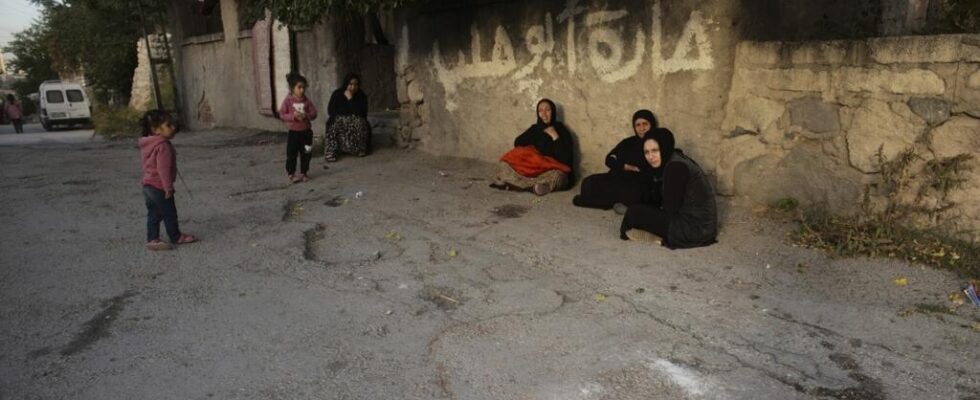The arrest of a Syrian man suspected of harassing a young girl in his entourage has sparked pogroms against businesses belonging to the Syrian community in the Anatolian city of Kayseri. The violence has spread to other cities in the country and has also sparked anti-Turkish protests on the Syrian side of the border. On Tuesday, July 2, Turkish police announced the arrest of 474 people, while at least seven people died on the Syrian side.
4 mins
Fear reigns among the Syrian community Türkiye since Monday, July 1st. The news of the arrest of a Syrian man suspected of harassing a seven-year-old girl has set the city of Kayseri in Anatolia, in central Turkey, ablaze, reports our correspondent in Istanbul, Celine Pierre-Magnani.
Punitive raids have been carried out in neighborhoods inhabited by Syrian refugees. Shops have been vandalized and even burned, and many xenophobic slogans have been circulating on social media. Turkish authorities have arrested 474 people who took part in these anti-Syrian riots, the Turkish Interior Minister announced on Tuesday, July 2. The police have also increased security around the Syrian consulate in Istanbul, an AFP journalist noted.
Violence reported in several cities across the country
The violence has spread to other cities across the country, including Istanbul. Since the war in Syriathe country hosts a large Syrian population, currently 3.2 million people, out of 85 million inhabitants in Turkey. Although they were well received at first, tensions around Syrian refugees in Turkey have hardened in recent years, in a context of serious economic crisis.
Kayseri governorate urged residents to exercise restraint, saying in a statement that the five-year-old child who was the victim of harassment also had Syrian nationality. Turkish President Recep Tayyip Erdoğan had condemned the latest wave of violence against Turkey’s large Syrian refugee community on Monday.
The Syrian issue has been the subject of political recovery during the last elections in Turkey and pogroms had already taken place, notably in the Altindaga district of Ankara in 2021. This new outbreak of violence comes as the Syrian community continues to live in fear of arbitrary deportations which have multiplied in recent years.
Violence in Syria in response to Turkish interests
In response, clashes broke out in border areas controlled by Turkey between protesters and Turkish guards. Seven people were killed there, in northern Syria, according to a new report provided on Tuesday, July 2, by a medical source and an NGO.
Hundreds of people demonstrated on Monday in several Syrian cities in this border strip, according to the Syrian Observatory for Human Rights (SOHR), in reaction to the attacks carried out the day before by groups of men against Syrian property and businesses in Kayseri, in central Turkey.
THE anti-turkish protests broke out almost simultaneously in 15 different locations. The main outbreak was observed in Afrin, a former Kurdish stronghold. Major clashes also occurred west of Aleppo, in areas controlled by the Hayaat Tahrir al-Cham jihadists, our regional correspondent reports, Paul Khalifeh.
The preferred targets of the protesters, some of whom carried weapons, were military positions and symbols of Turkish influence, border crossing points between the two countries, as well as trucks and vehicles registered in Turkey.
Spontaneous or organized movement?
The speed with which the protest movement spread, with the demonstrators adopting a largely identical modus operandi, raises a number of questions about the spontaneous nature of these demonstrations. Even if images of anti-Syrian violence in Turkey have angered much of the population in Aleppo and Idlib, a movement of this scale requires a minimum of planning and organization.
These protests come in a particular context, just days after President Recep Tayyip Erdoğan’s remarks to his Syrian counterpart Bashar al-Assad were deemed conciliatoryThe main losers from a possible Syrian-Turkish rapprochement would be the Kurds and the jihadists. It is precisely in the areas of influence of these actors that the most significant clashes have occurred.
Also listen toIn Lebanon, pressure on Syrian refugees increases, accused of ‘worsening the economic crisis’
